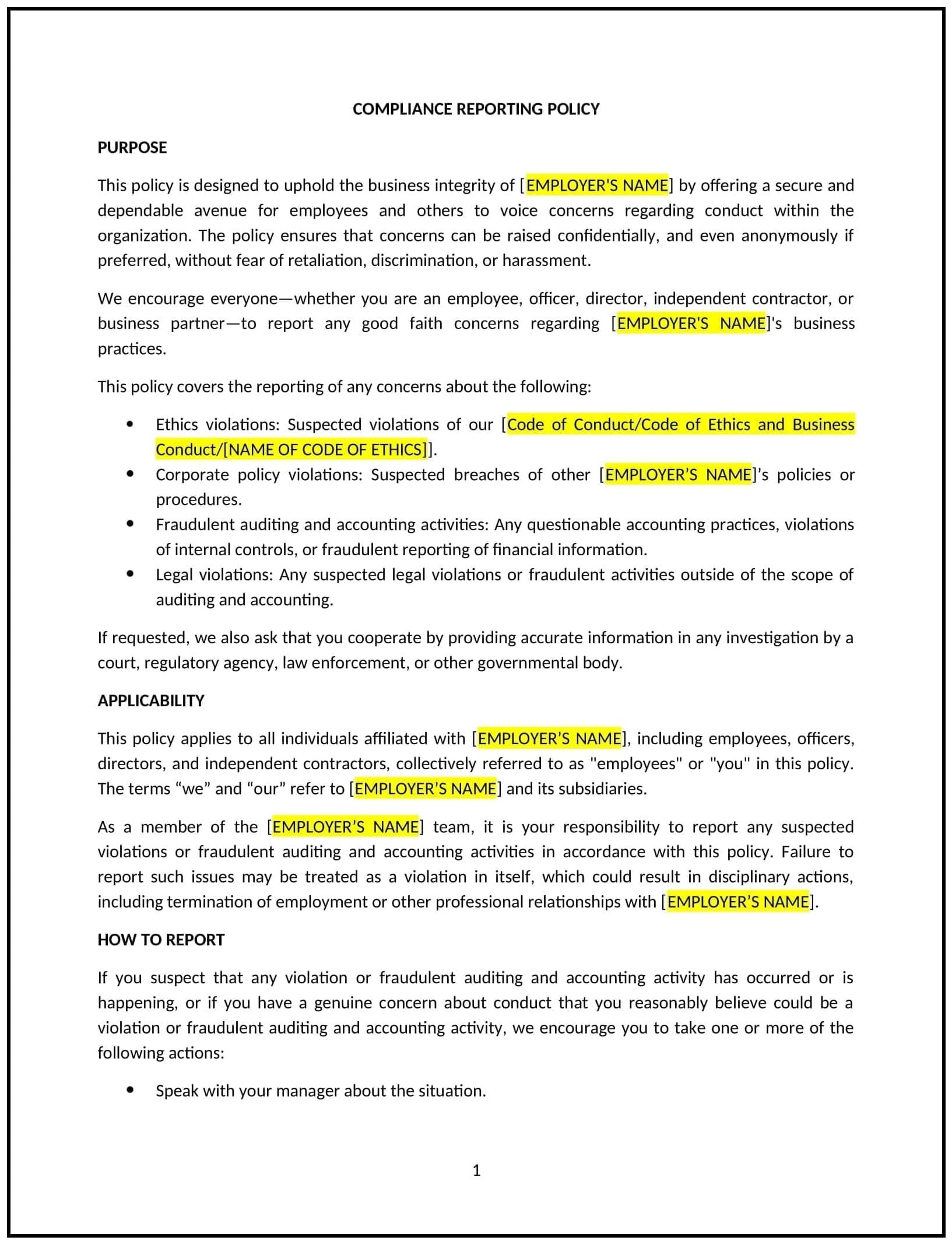Compliance reporting policy (Oregon): Free template
Got contracts to review? While you're here for policies, let Cobrief make contract review effortless—start your free review now.

Customize this template for free
Compliance reporting policy (Oregon)
This compliance reporting policy is designed to help Oregon businesses establish guidelines for reporting potential violations of laws, regulations, or company policies. It outlines procedures for reporting, investigating, and addressing compliance issues.
By adopting this policy, businesses can promote transparency, reduce risks, and maintain ethical standards.
How to use this compliance reporting policy (Oregon)
- Define compliance issues: Clarify what constitutes a compliance issue, such as violations of laws, regulations, or company policies.
- Establish reporting procedures: Outline steps for employees to report compliance issues, including anonymous reporting options.
- Address investigations: Specify procedures for investigating reported issues, ensuring confidentiality and impartiality.
- Provide protection: Offer protections for whistleblowers, such as anti-retaliation measures.
- Train employees: Educate employees on the policy and their responsibilities when reporting compliance issues.
- Review and update: Assess the policy annually to ensure it aligns with evolving business needs and legal requirements.
Benefits of using this compliance reporting policy (Oregon)
This policy offers several advantages for Oregon businesses:
- Promotes transparency: Encourages employees to report compliance issues without fear of retaliation.
- Reduces risks: Helps businesses identify and address compliance issues before they escalate.
- Maintains ethical standards: Demonstrates a commitment to ethical business practices and accountability.
- Enhances trust: Builds trust between employees and management, fostering a positive workplace culture.
- Aligns with best practices: Offers a structured approach to managing compliance reporting.
Tips for using this compliance reporting policy (Oregon)
- Communicate the policy: Share the policy with employees and include it in the employee handbook.
- Provide training: Educate employees on the policy and their responsibilities when reporting compliance issues.
- Monitor compliance: Regularly review reported issues and address any concerns promptly.
- Address issues promptly: Take corrective action if compliance issues are identified, ensuring consequences are enforced.
- Update regularly: Assess the policy annually to ensure it aligns with evolving business needs and legal requirements.